A 'love affair' with French Quebec that led to a life in radio: Jeanette Kelly dies at 70
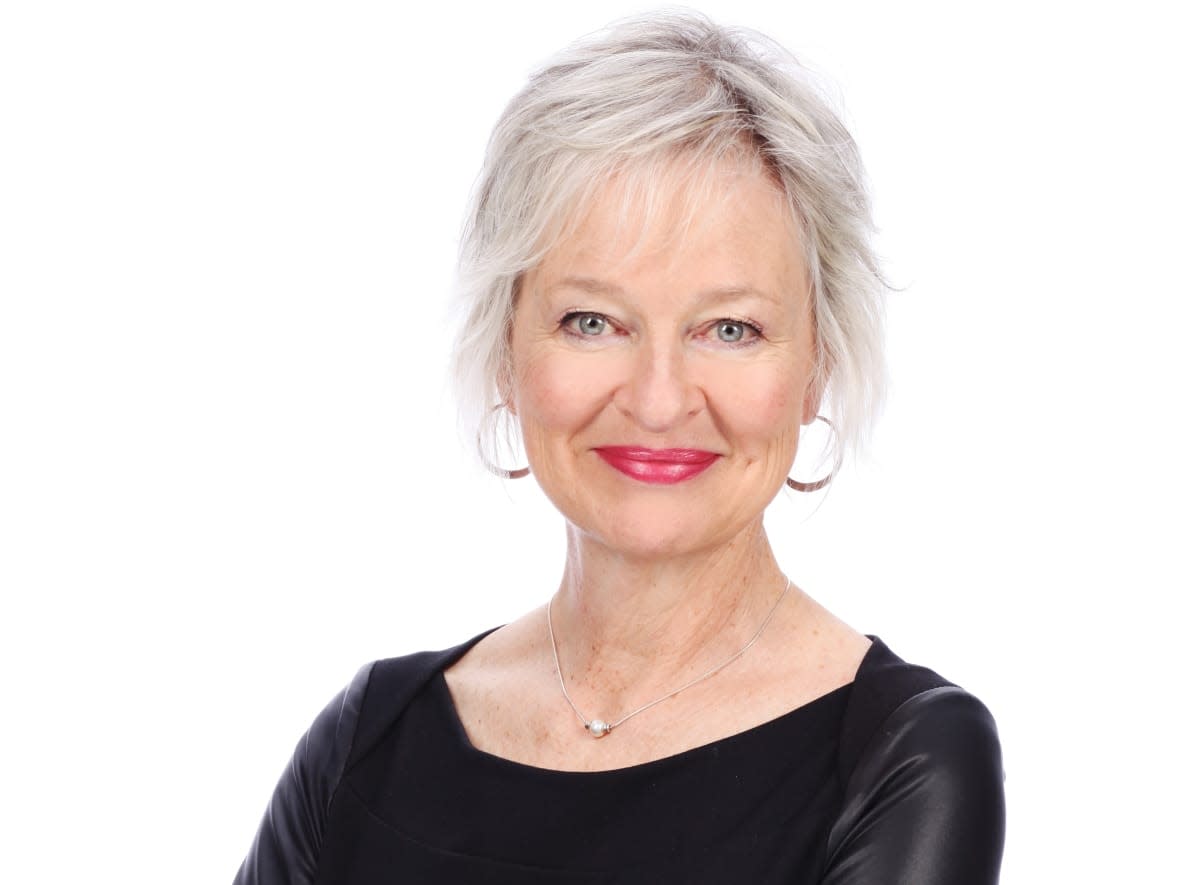
Jeanette Kelly was as comfortable within the book-lined walls of the Quebec Literary and Historical Society — founded in 1824 by the Earl of Dalhousie and home to Quebec City's old Anglo establishment — as she was interviewing Quebec pop singer Coeur de Pirate, actor Rémy Girard or French fashion designer Jean Paul Gaultier.
She coaxed stories out of circus performers, video gamers, Quebec cultural icons like filmmakers Denys Arcand and Denis Villeneuve, and down-and-out guitar players like Lance, a homeless man she met at an art workshop at a church basement drop-in centre in downtown Montreal.
From the late 1970s, when she quit her PhD program in French literature at Université Laval to take a job as a researcher at CBC Radio in Quebec City, until her retirement as the arts reporter at CBC Montreal in 2016, Kelly made it her mission to share Quebec's rich cultural scene with English-speaking Canadians.
Kelly, 70, died Thursday in her Montreal home, her daughters Jessica, Elsa and Paule and their families at her side.
"She was really part of CBC Radio's history in this province," CBC regional manager Meredith Dellandrea said Friday on CBC Montreal's Daybreak.
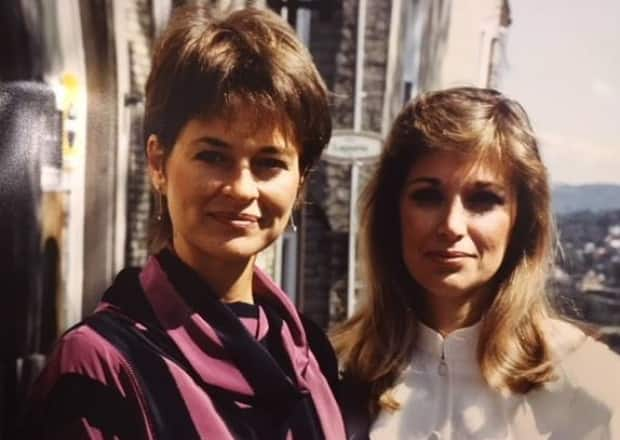
Kelly became the first host of Quebec City's afternoon radio show Breakaway in 1985.
"She was really a pioneer in bringing the richness of Quebec's francophone culture to the anglophone audience," said Barbara Uteck, the CBC executive producer who hired Kelly to host Breakaway, as well as Radio Active, a weekly program about the music Quebecers were listening to, which aired right across Canada.
The show, with its shoe-string budget, was recorded in a cramped control room in the basement of Quebec City's Auberge des Gouverneurs.
"One of my favourite memories is of sitting beside Rocky [a CBC technician] … and watching and listening as Jeanette taped Radio Active," recalls long-time producer Robert Renaud.
"It was one of those shows that CBC supported in no way, but that for Jeanette was a love affair — and her chance to share the joys of French music to English listeners from coast to coast."
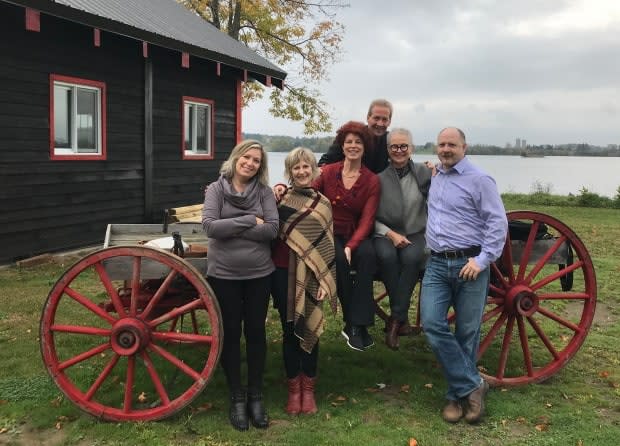
"She understood to the tips of her toes what francophone Canada was all about," said David Gutnick, who worked with Kelly as a researcher on Breakaway in Quebec City in the mid-1980s.
"She was able, as a broadcaster, to tell the stories, to convey the emotions of francophones to anglophone listeners. This was new. Anglophone Quebec was changing, opening up to their French-speaking neighbours, and Jeanette was one of the forces behind that."
'Radio royalty'
Jeanette Kelly was born in Lambeth, Ont., just outside of London, the eldest of six children. She visited Quebec for the first time on a high school trip.
"That's when she fell in love with the French language, and she just wanted to be around it," said her daughter Paule Kelly-Rhéaume.
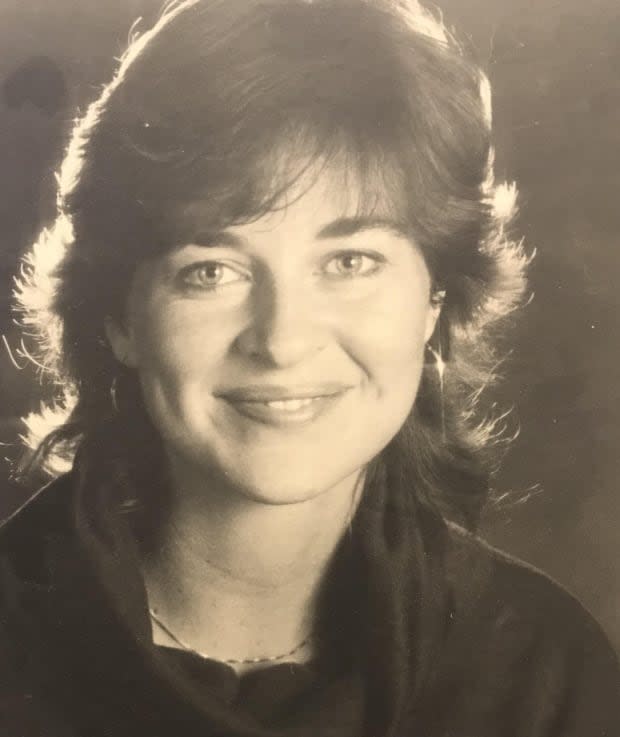
"She basically made Quebec her home," said her friend Mary Hagerman. "She knew everything about the cultural scene in Quebec City."
Hagerman recalled her first encounters with Kelly when she joined her at the Quebec City station in the 1980s. Kelly was chic, beautiful, with her own sense of style.
"I would catch glimpses of her as she floated through the newsroom dressed in clothes we all wanted to wear, followed by a cute young Frenchman carrying stacks of albums. She looked like radio royalty."
In 1986, Kelly gave birth to her eldest daughter, Jessica, and two years later, her twins arrived. She stayed home with the children in their preschool years, her daughters said. Those years were filled with music and theatre and artistic endeavours.
"She would sew our Halloween costumes and our dresses," said Elsa Kelly-Rhéaume. "She took us to see Les Misérables when we were, maybe, five. She would play the piano, and we would sing with her."
In 1989, the family moved to Chelsea, Que., and Kelly worked for the Ontario Ministry of Intergovernmental Affairs as a policy analyst in Quebec City and Ottawa. "Her job was to bridge those two cultures," said Elsa.
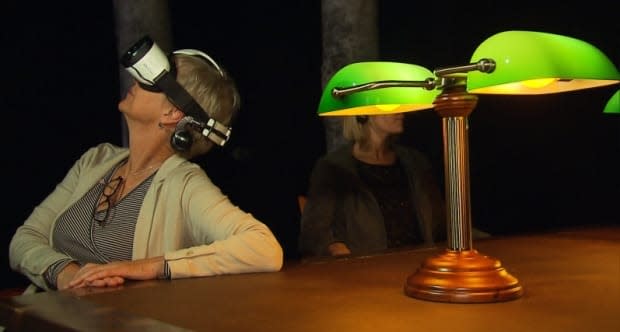
Kelly returned to CBC when the family moved to Montreal in the late 1990s. She threw herself into her work as an arts and culture reporter, at first on radio and later, covering arts stories on television and writing for CBC.ca.
"She was game for anything," said Dellandrea, then senior Daybreak producer. "We once had her and [sports columnist] Doug Gelevan switch beats. She took Doug to cover the opera, and Jeanette went and covered a Habs game."
"Whether it was covering a new technology in smart fabrics at Concordia University or getting to talk to Arcade Fire or Oliver Jones, she was just delighted about every person she was going to go out and talk to," said Dellandrea.
"She was genuinely curious about people, and she fundamentally believed that creativity and passion were ingredients of a rich life, and a rich culture and society, and she wanted to bring that to all of us."
'A pro on another level'
"She had this near-superhuman capacity for empathy, to connect with people," said Dimitri Katadotis, who produced Kelly when she hosted the weekend show, All in a Weekend.
"There were times when I would be there, watching and listening to her conduct an interview, with an opera singer, a noted thespian, a suave author from the U.S., a scientist, a community organizer, and it was like witnessing an intimate conversation.
"People opened up to her, wanted to, couldn't help but do it. This capacity made her a superlative journalist, a pro on another level…. I was in awe of her."
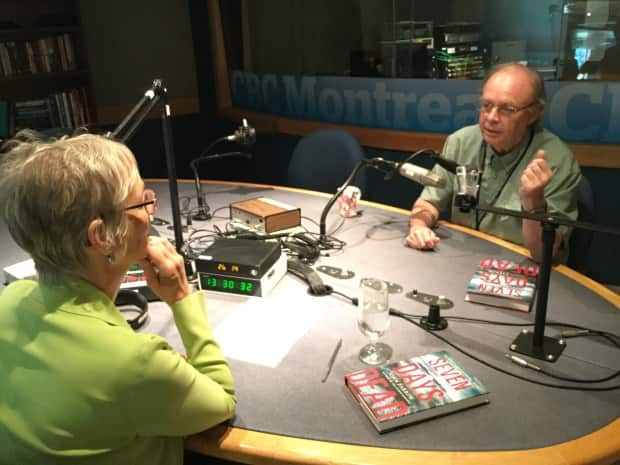
Her daughters recall how, when they were young, their mother would bring them to the CBC, so they could catch a glimpse of a musician or some other star she was set to interview.
"That's how we got to meet Corneille, and Sam Roberts," Elsa said. "Once, my mom was interviewing Chantal Kreviazuk, and my friend Francesca and I were big fans. We got to go into studio and ask her questions. Snippets of our interview went on the air."
"Our mom gave us access to the stars! That made us very cool, as teenagers."
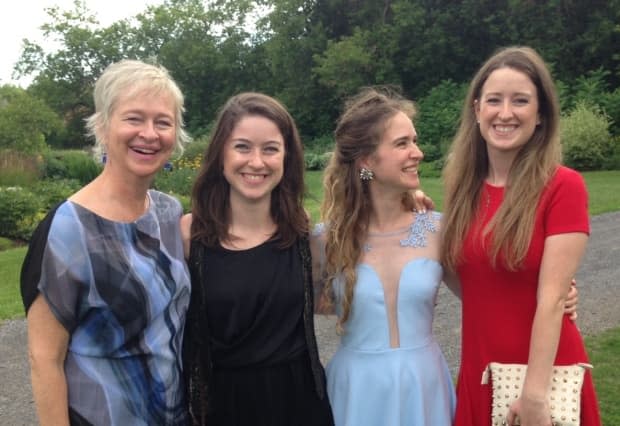
For years, Kelly had a 5:10 p.m. time slot on CBC Montreal's Homerun, hosted by Bernard St-Laurent, who had also worked with her in her Quebec City days.
"It was a joy to be on the air with her," said St-Laurent. "The show was a vehicle for her to share her stories, and because we knew each other so well, we were just having a conversation. We would get in trouble with the producer, going over the clock."
WATCH | 'An inspired interviewer' who made 'inspiring topics come alive':
Starting in late 2010, Kelly hosted her own weekly show on arts and culture, Cinq à Six, interviewing novelists and puppeteers, art curators and architects, poets and movie stars, and covering the gamut of cultural stories in depth and with passion.
She did not shy from controversy. Long before Quebec's secularism law, Bill 21, was enacted, Kelly delved into the debate over the Muslim hijab.
"We were doing a play called Live in a Whirlwind," recalled playwright Rahul Varma, artistic director of Teesri Duniya Theatre. Rather than dash in with her mic to ask a few questions then dash back out the door again, Kelly hung around to watch the whole play, about the struggle of women displaced by war.
"She stayed in the theatre not just for a conversation about the hijab or the scarf controversy, but to understand the whole thing," Varma said. With Jeanette Kelly, he said, the goal was always "to have that deeper analysis, to have a deeper question. And with her sense of humour — never editorializing."
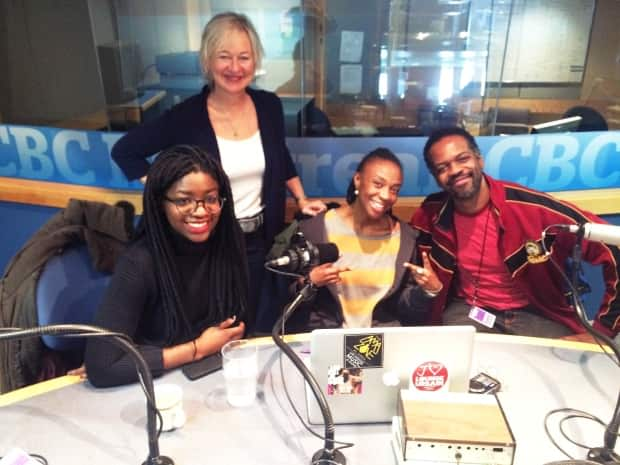
Kelly was diagnosed with breast cancer in 2005 and for much of the 17 years that followed, she was treated for one form of cancer or another. While she refused to let herself be defined by her illness or characterized as a "fighter," her daughter Paule said, she was open, honest and generous about sharing her experience with other women diagnosed with the disease.
In 2012, she posed for Montreal photographer Phil Carpenter for his book of portraits, Breast Stories: Cancer Survivors Speak Out.
In the photo, she sits at her beloved grand piano, her reconstructed breast revealed.
"It was as if her smile was permanently etched on her face," Carpenter recalls of that day she sat for him.
"She was kind, gracious, welcoming and so open — about herself, her thoughts, her concerns. And so, so gentle. Still, there was an intensity in her gaze that I read as determination, conviction, hope. Since then whenever I think of dear Jeanette, even now, I smile."
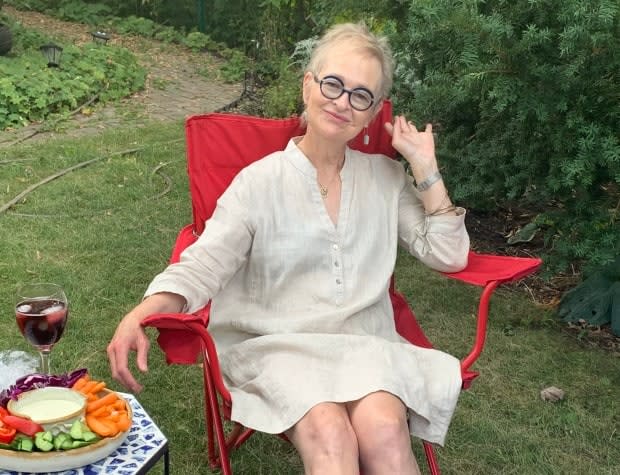
Jeanette Kelly leaves her daughters, Jessica, Paule and Elsa, her grandchildren Louise, three-and-a-half, Blaise and Henri, both two, as well as her sons-in-law, Jean-Marcel and Antoine.


